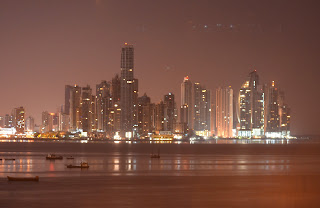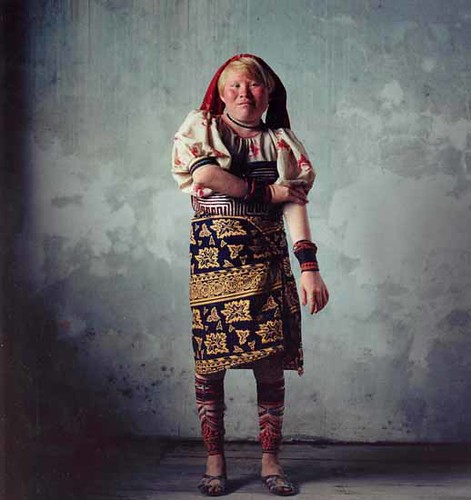I’m going to take a moment to explain that I do not agree
with the labeling of countries as if they are all attempting and should attempt to attain the same things as the United States. Similarly, I dislike the term “developing”
versus “developed” when referring to countries. Nevertheless, this is how many people understand and
categorize countries of the world, because it is easy and because the US and Western Europe dictates what is "right" for countries. This entry is not meant to say that Uganda
is worse than Panama which is worse than the United States. I hesitated a long
time to write this blog because I did not want to give such an impression.
Rather, I want to explain how my experience living for 4 months in a culture
and a country very different in so many ways from my own was essential to my
ability to now live in another foreign country, that is not so different, but
foreign nonetheless, for almost a year.
There were a lot of factors that went into my choice to go
to Ghana for 2 months and Uganda for 4 while I was in college. I could fill many a blog with my
interest in the Sub-Saharan area of the continent, but instead I will link you
to my blog I kept while in Uganda.
If I could give advice to anyone thinking of traveling
abroad it would be:
1. Go somewhere you would never go on your own
2. Go somewhere where you will be a minority.
Both of these aspects of my study abroad experience were
difficult and trying, but they pushed me and taught me in ways I could never
anticipate or learn in any other way.
I won’t lie, living in Ghana for 2 months and Uganda for 4
was hard. My bad experience in Ghana, however had more to do with the American
organization I was with, so I will focus on Uganda, which is where I spent more
time anyway.
 In Uganda I went through most every stage of culture shock,
which is basically the 7 stages of grief. I would say it was only in the last 2
weeks I was there that I reached a sort of acceptance/acclamation stage. Before
that, every day was a struggle to adapt and learn. I spent far more time
thinking of home than I would care to admit. We on the program would call it “cutting”,
“food cutting” was when you would obsess over something like tacos from taco
bell, “relationship cutting” was when you talked over who you may or may not
have to look forward to when you came home, as almost all of us were in some
sort of limbo with significant others back home.
In Uganda I went through most every stage of culture shock,
which is basically the 7 stages of grief. I would say it was only in the last 2
weeks I was there that I reached a sort of acceptance/acclamation stage. Before
that, every day was a struggle to adapt and learn. I spent far more time
thinking of home than I would care to admit. We on the program would call it “cutting”,
“food cutting” was when you would obsess over something like tacos from taco
bell, “relationship cutting” was when you talked over who you may or may not
have to look forward to when you came home, as almost all of us were in some
sort of limbo with significant others back home.
Living in Uganda, we learned to live without a lot of what
was commonplace back in the states. We learned, but that doesn’t mean we didn’t
miss it. More than a few of us had dreams about having washers, as all of us
hand-washed our clothes. An
unhealthy tactic I developed when going out or on trips was not to drink very
much water, as the bathrooms were few and their sanitation was typically
atrocious. I began to prefer the outdoors or even holes in the floor to actual
toilets.
 |
| Public Restroom as a Kampala Gas Station |
Still some things I really did adapt to and enjoy. I got
used to the smell of the city, which many times included trash, sewage and
livestock. I accepted that sometimes my food might have an ant or two in it. Though
I desperately missed things such as raw vegetables and ice cream, I started to
look forward to matooke and gnut sauce, and I still miss Obama chapatti. I
enjoyed the public transportation including the motorcycle taxis. I liked only using a cell phone
ever-so-often and I enjoyed the focus and intensity given to me by having
limited access to the internet and TV.
 Most important to my current work, Uganda taught me how to
network and how to present myself as a legitimate professional. I admit that my
status as a US citizen gave me much undeserved credibility. I was able to
interview high-ranking officials and arrange interviews with organizations on
the spot. Not that I could have never done this in the US, but I would never
have thought to try before.
Most important to my current work, Uganda taught me how to
network and how to present myself as a legitimate professional. I admit that my
status as a US citizen gave me much undeserved credibility. I was able to
interview high-ranking officials and arrange interviews with organizations on
the spot. Not that I could have never done this in the US, but I would never
have thought to try before.
Uganda
gave to me a “why not?” attitude and a confidence within my own ability to
enact change. Another wonderful skill my experience gave me was an ability to
wait, which is truly a gift. “African Time” runs slower than we expect in the
U.S. and I learned to anticipate and be ok with that. (A big help was to stop
wearing a watch). I also learned to go with the flow and to improvise. By the
time the group of us left Uganda, we knew that if something went wrong on our connecting
flights and we couldn’t make it home on-schedule, oh well, we’ll get there
someday.
So how does this translate to Panama?
I have begun to judge this in many ways against remarks I
have heard from expats here, travelers in the hostel, or even other
Panamanians. Essentially I feel like I can one-up any of the experiences I have
had here so far.
On several occasions in Ghana I
was told that I could not have two different menu items simply because “they do
not go together”.
“The traffic is horrible, no one can drive”
In Uganda there is a saying “If
you drive in a straight line in Kampala, than you must be drunk”. Here there
are very few motorcycles and I have yet to see a cow or a goat in the middle of
the road.
“I feel like I stick out so much here”
 |
| Someone's adopted in this family... |
Panama is a city of immigrants with a long history
of colonization and intermixing between native Panamanians and Spanish. If I
don’t open my mouth and dress right, I can go relatively unnoticed. NOT the
case in Uganda.
“Nothing starts on-time”
I would estimate Panama time is 15-an hour late at most. Uganda : 1-2 hours, Northern Ghana: 2-3 hours
Living in this city, I am never want of the necessities:
water is clean out of the tap and electricity is dependable. And I have all of the niceties: I have
wifi and a washer in my apartment
and ice cream is within walking distance. Yes, I still get homesick, but it is
always for people, not things. That being said, I chose to live more simply
than I have in the states. I have yet to buy new clothes, and what I buy is
typically the cheapest off-brand I can find. Yet, my life here is more than
comfortable and it is comforting to know that I can live with a lot less.
A blog for another time is the recognition that I SHOULD
live with a lot less.







